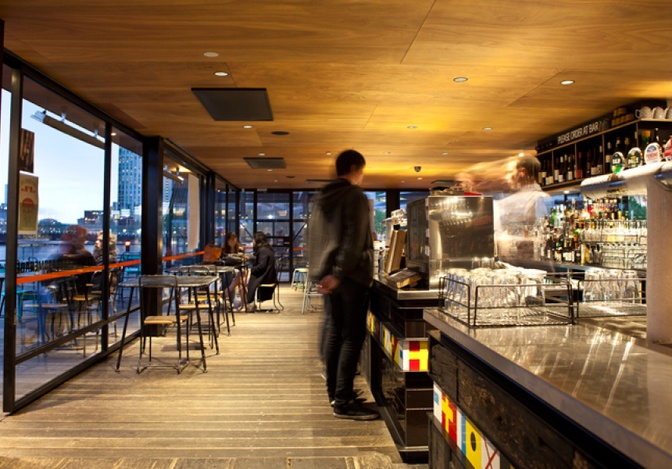Hospitality groups offer a range of career choices beyond restaurants, bars and cafes. We talk to the group general manager of the Riverland Group about some of the benefits.

The Riverland Group is one of Melbourne’s most diverse hospitality groups. With more than a decade’s experience in the industry, the business looks after a range of restaurants, bars, and cafes, as well as curates special events.
The broad portfolio of Riverland Group means a variety of employment options for its 200-plus staff. As well as increased opportunities for training and skill development, there’s also an experienced team offering strong support and guidance.
The group’s general manager, Paul Hourigan, has worked in hospitality groups since beginning his career as a bus boy. Fifteen years later, after working his way through cafes, bars, and into venue management at The Manningham Hotel and Cottesloe Beach Hotel, he’s watching as Riverland ensures its staff gain similar experience and support in the industry.
Hourigan now oversees the operations and management of Melbourne venues Riverland Bar, The Boatbuilders Yard, Pilgrim, The General Assembly, Wye River General Store and the upcoming Bang Bang RC in Elsternwick.
He may have started out clearing tables on the Sunshine Coast, but his path through the hospitality industry has taken him around the world. We spoke to Hourigan about some of the benefits of working in an organisation like his.
1. Learning from peers
“When I first started I tried every job I could to get my head around it all,” says Hourigan, He says taking a lot of different jobs within the industry gives you broad exposure to the careers on offer, and encourages learning from colleagues.
The Riverland Group has at least 120 employees at any one time, and Hourigan says the number increases to 250 during peak time in December. Being part of a large group means more people to learn from, and more connections can be made.
2. Sharing the love
Every month at The Riverland Group, staff members meet with their managers for a one-on-one chat to raise any concerns or issues. Hourigan says there’s more to it than just a catch up.
“It’s also a way for us to farm ideas,” he says. “Rather than just having me at the top making decisions, we have 220 staff coming up with ideas too. It’s another way of giving our guys ownership, giving them a voice and empowering them.”
3. A range of options
“Independent businesses are great,” says Hourigan. “But there’s only so far you can go.” He says a hospitality group overseeing multiple venues provides a range of different avenues, roles and skills for staff to progress through.
“We had a food runner, Paddy, who became a really great barista,” says Hourigan. “Then he wanted to have a shot at cooking, so we set up an apprenticeship and he’s now flourishing in one of our kitchens.”
4. Growing up and out
As well as internal training programs, staff in hospitality groups can learn skills in external management and development training. Hourigan says all his staff have the opportunity to learn what it means to be a manager, including how to listen, and how to be assertive but respectful.
“We’ll often put someone straight out of school on as a food runner,” he says. “Then if they’re keen to engage in a hospitality career, we can put them through training and industry programs. That food runner can develop into a bartender, a waiter, and right through to the point where they’re a team leader or a manager.”
5. New venues = new skills
One of the most intense yet rewarding opportunities Hourigan can offer his experienced staff is the chance to be part of a new venue.
Hourigan says Toby Waite – formerly of Wye River General Store and Pilgrim Bar – is getting ready for the opening of Bang Bang in Elsternwick, Melbourne, where he will be the venue manager.
“There’s new openings, and then there’s also the chance to jump in and try change management,” says Hourigan. “While Toby is waiting for Bang Bang to open, he stepped into a management role in a venue and applied his change management skills. He soon found out he had to identify issues, make quick decisions and act on them quickly.”



